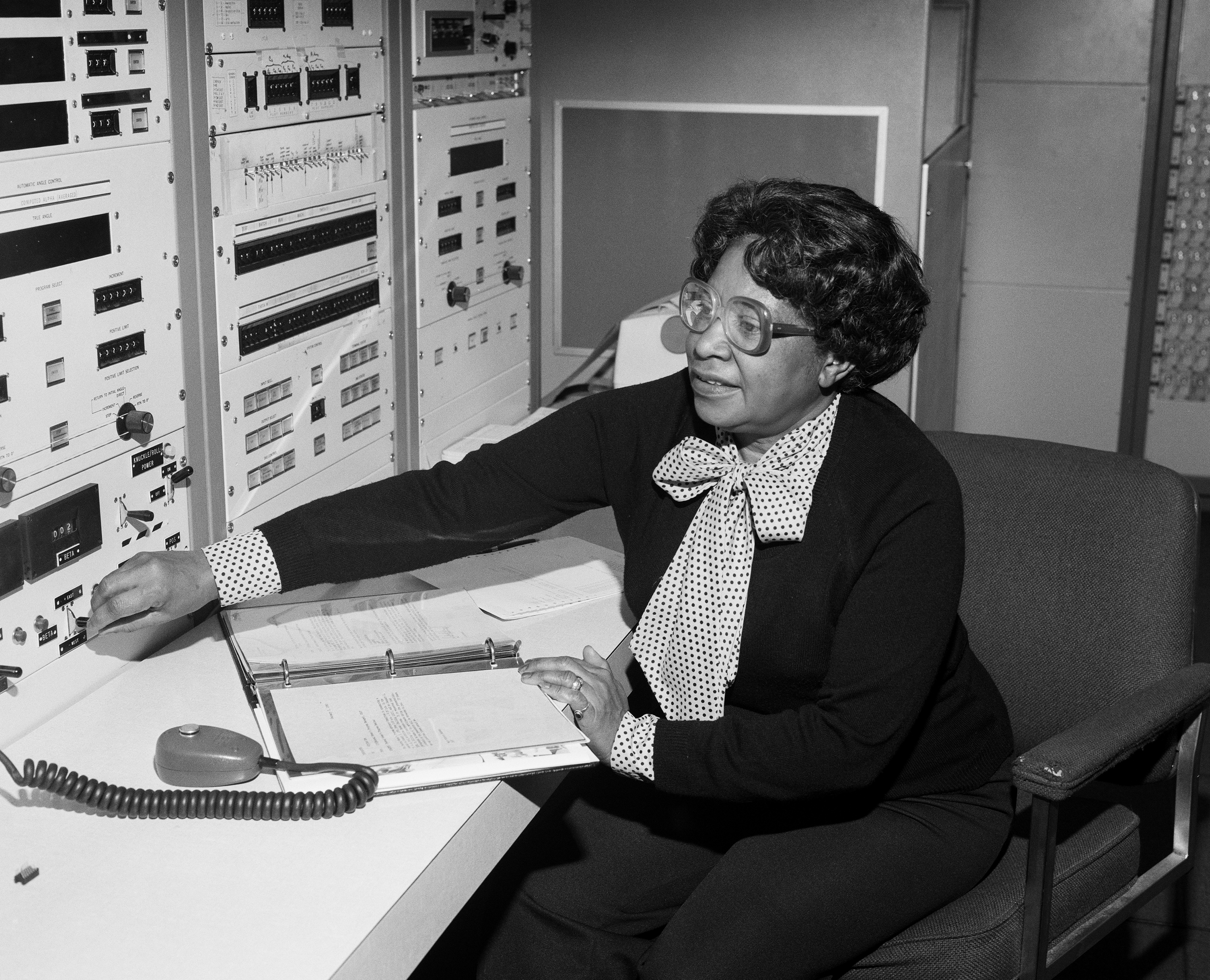Jackson, Mary (1921-2005), was an American mathematician and engineer. She was the first Black female engineer at the National Aeronautics and Space Administration (NASA) . At NASA, Jackson championed the rights of women and minorities in the fields of mathematics and engineering .

Jackson was born Mary Winston on April 9, 1921, in Hampton, Virginia. She received a bachelor’s degree in mathematics and physical science from the Hampton Institute in 1942. She then worked as a mathematics teacher in Calvert County, Maryland, and took on a variety of jobs before joining the National Advisory Committee for Aeronautics (NACA) Langley Research Center in 1951. NACA was the agency that preceded NASA.
At Langley, Jackson was a member of the West Area Computing unit, a group of Black women mathematicians headed by Dorothy Vaughan . There, she initially analyzed data collected from flight experiments. Soon, she began working for the engineer Kazimierz Czarnecki. In 1958, the year that NACA transitioned into NASA, Jackson was promoted to engineer. That year, she co-authored her first report on the behavior of air around objects in flight at supersonic (faster than sound) speeds. She went on to publish several more research reports on this topic.
Jackson achieved a high rank as a NASA engineer, but she was frustrated by the gender and racial prejudice that still restricted her advancement. In 1979, she ended her engineering career to take a position as Langley’s Federal Women’s Program Manager. In this role, she helped women advance at the Langley Research Center.
Jackson retired from NASA in 1985. She died on Feb. 11, 2005. The book Hidden Figures: The American Dream and the Untold Story of the Black Women Mathematicians Who Helped Win the Space Race (2016), written by the American author Margot Lee Shetterly, chronicles Jackson’s life and career, as well as those of other members of the West Area Computing unit. The American actress Janelle Monáe depicted Jackson in the 2016 film Hidden Figures, based on Shetterly’s book. In 2019, Jackson was posthumously (after death) awarded the Congressional Gold Medal, the highest civilian honor given by the U.S. Congress. In 2020, NASA named its headquarters in Washington, D.C., the Mary W. Jackson NASA Headquarters in her honor.
